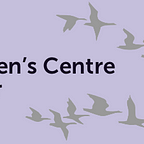Early Years (Speech, Language and Communication) Peer Challenge Programme
Liz Hodgman shares news of the Local Government Association (LGA)’s search for experienced, early years experts from a range of backgrounds to support the delivery of the Early Years (Speech, Language and Communication) Peer Challenge programme.
The LGA has been commissioned by the Department for Education (DfE) to deliver this programme of peer challenges as part of their Unlocking Talent, Fulfilling Potential: A plan for improving social mobility through education. The LGA has now completed over 20 Early Years Peer Challenges across England, with more scheduled for the spring and summer terms.
Peer challenge is a proven tool for improvement and involves a small team of officers spending time with a council and its partners to provide challenge and share learning. The peer team will interview leaders and managers, facilitate focus groups of staff and observe practice. The key purpose of the challenge is to stimulate local discussion about how the council and its partners can become more effective in delivering improved outcomes for children.
All members of the peer team are knowledgeable about, and experienced in, the delivery of early years and will include professionals from a range of backgrounds including: local authority; public health; children’s centres; midwives; health visitors; speech and language therapy; childcare; education; and libraries. The peer team will also study documents, strategies, plans, policies, performance information and a self-assessment produced by the local area.
The peer team feed back to the council and their partners, both verbally and then in writing, their observations and formulate recommendations based on the evidence they have seen, heard and read.
Whilst each challenge is different there are some common themes emerging:
- Some areas have a lack of clarity around school readiness. Different organisations within the early years system have different understandings and expectations. This can create a disjointed system and confuse parents and carers. Some areas have created clear family journeys from conception to starting school with visual pathways to share with parents.
- Whilst some areas have an early years strategy in place, many are not multi-agency and do not focus on the whole early years system.
- Most areas do not have a shared outcomes frameworks and data dashboards across their systems. These ensure that all organisations are accountable and responsible for the outcomes for the areas’ families. Establishing a clear governance structure for the early years system is critical.
- There needs to be a greater use of data to ensure needs-led commissioning is effective.
- Co-construction with parents and communities needs to be improved across many areas. This will empower parents and enable greater peer support within communities, making interventions and programmes more sustainable. There are some excellent examples of where this is working really well and parents have gone on to deliver and lead on projects within their own community.
- Levels of two-year-old funded childcare take up are low in some areas and this can result in a reduction of early identification of children with speech and language delays.
- The two-year-old reviews are not always integrated between health visiting and childcare providers. Managers of day nurseries and pre-schools are not always provided with information on the Ages and Stages Questionnaires completed with families. This can impact on early identification of needs and referrals for appropriate support.
- Services need to be more robustly evaluated. Understanding why services are not effective in some areas will enable more effective future commissioning.
- Partnership working is still developing in some areas and needs strengthening. There are some excellent co-delivery models across the country with key partners being co-located within children’s centres and working as one team to support families.
- The importance of the Home Learning Environment is widely acknowledged, however some areas need to plan more support for families to improve parental expectations and understanding of their child’s developmental needs.
The LGA has been sharing the learning from the peer challenges through termly learning events. These events provide an opportunity to share good practice and innovative ideas, learn how other councils have overcome barriers to delivering interventions and improved partnership working across their systems. These learning events have also included information about national programmes and policy, for example from the BBC and DfE.
Being part of a peer challenge team is intensive but rewarding. It is a valuable learning experience, enabling a two-way exchange of good practice and provides an opportunity to reflect on your own locality’s performance. It highlights innovative ways of working that can support sustained improvement and offers the chance to work alongside people from across the country who have a passion for children’s services. It is also an opportunity to build long lasting professional networks.
We expect peers to have an excellent understanding of services for disadvantaged children and families and the drivers of outcomes at the age of five; to be inquisitive and open minded; and to be able to challenge effectively.
The LGA will be delivering more peer training events at Warwick University. If you are interested in learning more about the training then please do get in touch. We are particularly keen to hear from children’s centre leaders and health professionals based in children’s centres.
Elizabeth.Hodgman@local.gov.uk
Liz Hodgman, Programme Manager for Early Years, Local Government Association, has worked in the early years sector for over 25 years. Her roles have included delivering and managing childcare provision, NVQ assessor and childminding network coordinator. Liz has managed groups of children’s centres in London boroughs and been the Early Years Strategy Manager for a London Council.
